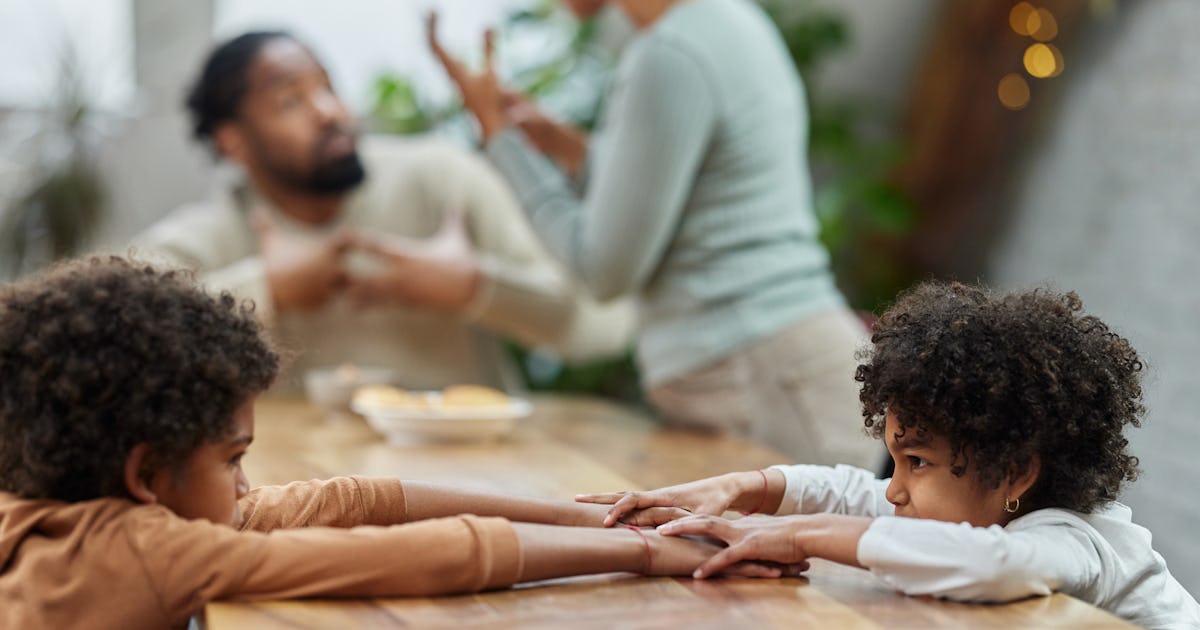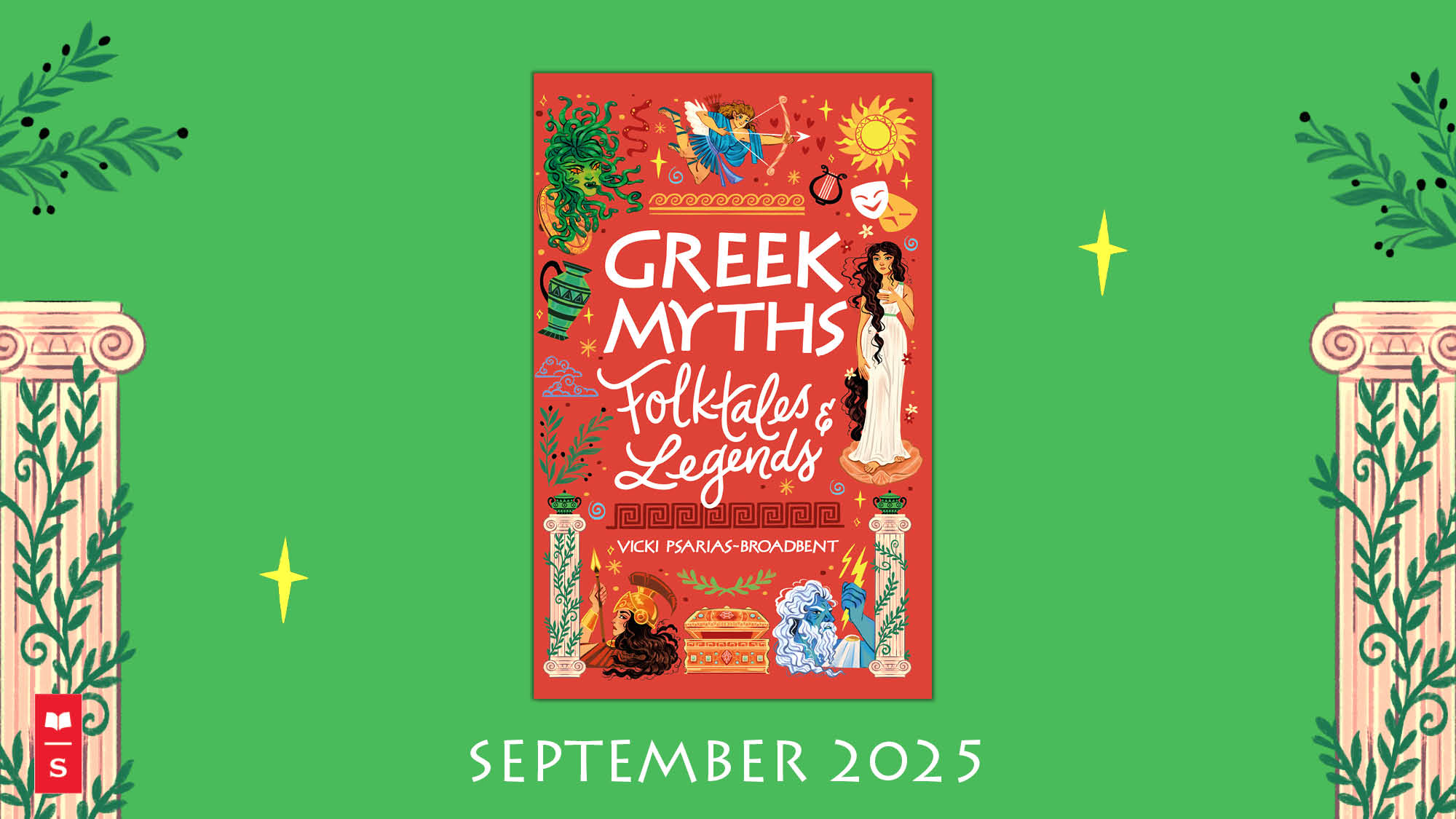
We stayed together for the kids.
It’s a sentence that, even if you’ve never uttered it, you’ve probably heard someone you love say. The person saying it may be unhappy or heartbroken, but they believe the way they feel is a worthy sacrifice if it makes their children’s lives better. Does it, though? Kids are more intuitive than we often give them credit for. They notice the way their parents speak to each other — or don’t. They may not understand it, but they feel the quiet tension in the room. And, over time, that emotional climate becomes an emotional blueprint. But how much does your relationship shape your kid’s future relationships, really?
Scary Mommy reached out to psychologists, therapists, divorce pros, and more for insight on what kids learn about love by watching their parents. Spoiler: It’s not whether you stay or separate that defines your child’s emotional future; it’s what your child sees and hears when you and your partner (or ex) interact.
The Modeling Effect
Trite but true, children soak up everything. “Children are psychologically boundary-less, and they absorb everything around them,” Audrey Schoen, licensed marriage and family therapist, tells Scary Mommy. “Typically, children will either react to or model after what they see and experience growing up.”
Michelle English, licensed clinical social worker and executive clinical manager at Healthy Life Recovery, expands on the point, saying, “Parents are their kids’ first role models. So, the way they behave, communicate, and show love (or don’t) has a big impact on their child’s emotional development and mindset around relationships. I always say kids are like sponges — they easily absorb what they see. If they grow up watching two people stay together while clearly unhappy, always bickering or cold toward each other, they may start to believe that love means settling, giving up on happiness, or tolerating mistreatment. And later… they might carry those same patterns into their own relationships.”
In this respect, the emotional “tone” of the home matters more than marital status.
“Whether married, divorced, co-parenting, or remarried, the key is how you and your partner treat each other and your child. A separated parent who co-parents respectfully and models emotional honesty and kindness may offer a healthier interaction than two parents who stay married but emotionally shut down,” explains Dr. Kanchi Wijesekera, licensed clinical child psychologist and founder of Milika Center for Therapy & Resilience.
Lasting Impact
Kids tend to internalize dysfunction. Even when you think you’re hiding it well through emotional distance or that your kid won’t pick up on passive aggression, that sort of conflict can be just as toxic as overt fighting or, yes, divorcing.
“Research consistently shows that a high-conflict household, even without fighting, can be more damaging to a child’s emotional development than a peaceful separation,” Wijesekera says, citing Dr. E. Mark Cummings, a leading researcher on children and marital conflict, who stated: “It’s not divorce per se that hurts children. It’s the conflict that comes before, during, and after.”
Kids who grow up around conflict — covert or overt — experience a form of trauma imprinting that lasts well beyond childhood.
Explains Wijesekera, “This can lead to difficulties forming secure attachments, poor emotion regulation, and challenges in future relationships … Children benefit from seeing warm, respectful, and affectionate interactions between their caregivers. If the parental relationship is cold and distant, even if it’s not openly hostile, children may learn to associate intimacy with discomfort.”
Therapist and certified high-conflict divorce coach Carrie Ann Cleveland says this is especially true in homes with a power imbalance, whereby one parent uses coercive control while the other walks on eggshells.
“When children see that one parent is powerless, helpless, or victimized, they often don’t feel safe. If an adult can’t keep themselves safe, how can a child expect that person to keep the child safe? When children see that one parent is verbally abusive, disrespectful, demeaning, condescending, angry, or violent, they often don’t feel safe,” she says. “They learn that they have to be perfect to please everyone, that they can’t show their emotions, that love is conditional and that the people who are supposed to protect them aren’t trustworthy. All of this information is then stored away and applied to future relationships.”
The Loop
In other words, kids often repeat unhealthy dynamics.
“We always marry our unfinished business. We unconsciously seek out partners who will recreate just enough of what we grew up with that we will be forced to face it. But also just different enough that we hope it can change,” laments Schoen, calling parents’ relationships the “blueprint” for their child’s future relationships.
Cleveland sees this in her practice, too, expounding, “I have come to learn that pretty much all adults seek partners who mirror the worst qualities of whichever (or both) parent(s) they struggled with the most during childhood. Our minds seek out familiar dynamics, even when they are unhealthy.”
She notes that while we tend to do this for a “second chance” at resolving the dysfunction we experienced in our formative years, we unfortunately “often need second, third, fourth, and fifth (etc) chances, which is why we often find ourselves dating the same (type of) person over and over again, despite thinking we’ve learned our lesson.”
What Healthy Looks Like
At the end of the day, practicing respectful communication and kindness is incredibly powerful when it comes to informing the way your child perceives relationships.
“If parents communicate well, treat each other with respect, and show affection (even if they eventually separate), children can still learn healthy relationship dynamics. They’ll see that it’s possible to be respectful and loving even when things don’t work out,” says English.
But Wijesekera emphasizes that your relationships don’t have to be picture-perfect: “Children do not need perfection, but they do need a secure emotional environment. This would be where love is shown, not just stated, and where conflict is resolved.”
So, yeah, “staying together for the kids” might seem like a noble thing to do, but remember that children pick up on much more than we think.
“The question shouldn’t be ‘Should we stay together for the kids?’ but rather, ‘Are we giving our children tools to build healthy relationships by the way we relate to each other?’ If the answer is no, seeking therapy, whether as a couple or an individual, is a valuable first step. Emotional safety is the priority, even if that means rethinking the family structure, and that can be an act of love,” says Wijesekera.
Renee Bauer, a divorce attorney and the founder of Happy Even After Family Law, wholeheartedly agrees.
“I always ask clients: ‘Is this the relationship you want your kids to have?’ They all answer an emphatic ‘no.’ Then I say, ‘Well, that is exactly what will happen if you don’t model something different, even if that means you are apart.’ We have to stop equating staying together with being good parents. Sometimes, choosing peace, even if it means apart, is the most powerful thing you can do for your kids.”






